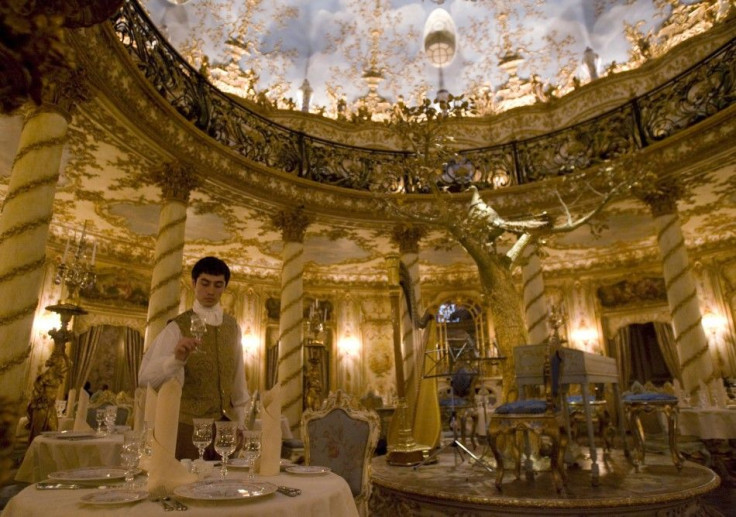Celebrity restaurant fad takes hold in glossy Russia

Celebrity restaurants, long a fixture of New York and London, are now a confirmed Russian fad with the recent opening of a Moscow venue by a home-grown filmmaker raising the tally of eateries and bars backed by artists, actors, socialites.
Andrei Konchalovsky, a veteran director known in the West for his Hollywood movies, such as Runaway Train and Tango and Cash, opened the art-deco style Yornik restaurant with his wife Yulia Vysotskaya earlier this month.
This followed the September opening of Chemodan, an eatery inspired by Siberia's hearty cooking and owned by Oleg Menshikov, an actor famous for his role in the 1994 Oscar-winning film Burned by the Sun.
The venues give the celebrity restaurant fad a local flavor and follow a wave of importing famous restaurants that have already made their names elsewhere, such as Nobu.
Vadim Irushkin of Restaurants Rating, a restaurant booking and information company based in Moscow, said the trend is visible, but that celebrities are not always the sole owners.
Big restaurant companies (also) invite famous people to be the 'first faces', he said, citing the Russian socialite and reality TV show host Ksenia Sobchak's Byblik (Bagel) and old-time rock-pop singer Grigori Leps's karaoke bar, Leps Bar.
Those ventures are backed by the restaurant company The Ginza Project, which is also behind dozens of so-called concept restaurants in Moscow.
We get a lot of requests to book tables in such places, because many people are interested in the dolce vita lifestyle, Irushkin said. Sometimes people don't think about the food in these restaurants, it is more about being seen than anything else.
GLOSS, GLITTER AND GOLD
Moscow, one of the world's most expensive cities where dining out can cost more than an average monthly mortgage bill in the rest of the world, is very much about showing off.
Gloss, glitter and gold are not only regular themes for the fashion-conscious Muscovites, but often dictate the decor of spaces, public and private alike.
Increasingly saturated, however, with restaurants, bars and cafes, the fight for customers is getting tougher, with owners seeking to differentiate their places.
Menshikov, the owner of Chemodan (Suitcase) describes his restaurant as a gastronomic theater guided by 19th century Siberia. Konchalovsky's Yornik (a sly trickster) is a glossy but somber affair of tomb-grey walls, low lighting and a scattering of second-hand books.
The 74-year-old filmmaker, who rejects talk of a celebrity-restaurants trend, chose the photographs of the all-male yorniki on the walls: Ernest Hemingway, paunchy with a rifle, Anton Chekhov and futurist poet Vladimir Mayakovsky.
I just wanted a place for people who like good food, where they can read, he told Reuters at the restaurant's launch.
The menu was supervised by his wife, Vysotskaya, an actress and a famous local television chef, who described it as Russian food with a European slant.
On the menu is her creation, gretchotto - risotto made with buckwheat porridge - a staple of Russian cupboards.
Gretchotto is cooked with white wine and chicken stock, but vinaigrette and mascarpone have been added to lighten the dish.
Russia's largest casual dining chain operator Rosinter, estimates the country's dining market value this year at 550 million roubles ($17.64 million), with Moscow's share at 40 percent of the total.
© Copyright Thomson Reuters 2024. All rights reserved.





















